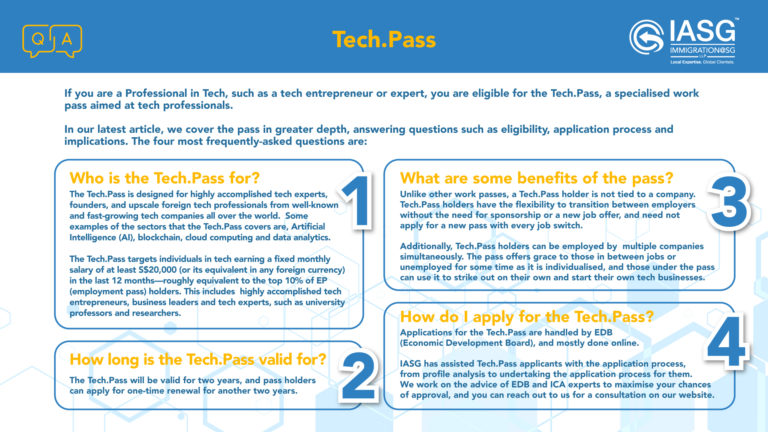Quantum computing, once a theoretical concept, is rapidly evolving into a transformative force that promises to redefine industries and solve complex problems beyond the reach of classical computers. As the global quantum computing industry accelerates, Singapore is emerging as a significant player in the field, with substantial investments and strategic initiatives aimed at becoming a quantum technology hub in Asia.
The Global Quantum Computing Landscape
With a capability of performing calculations 158 million times faster than the fastest computer we have today, quantum computing is marked as the next big thing after Artificial Intelligence (AI). The global quantum computing industry is marked by intense research and development, spearheaded by technology giants like IBM, Google, Microsoft, Intel, and D-Wave. These companies are pushing the boundaries of quantum science to create powerful quantum processors, often referred to as qubits, which leverage the principles of quantum mechanics to perform computations at unprecedented speeds.
In 2019, Google announced a landmark achievement known as “quantum supremacy” with its Sycamore processor, which solved a problem in 200 seconds that would have taken the world’s fastest supercomputer 10,000 years. This milestone highlighted the potential of quantum computing to outperform classical computers in specific tasks, paving the way for future innovations.
Applications of Quantum Computing
- Cryptography: Quantum computing is expected to revolutionise cybersecurity. Quantum algorithms, such as Shor’s algorithm, have the potential to break current encryption methods, prompting the development of quantum-safe encryption techniques.
- Drug Discovery: Pharmaceutical companies are exploring quantum computing to simulate molecular structures more accurately, speeding up the discovery of new drugs and treatments.
- Optimisation Problems: Quantum computers excel in solving complex optimisation problems found in logistics, finance, and supply chain management, offering solutions that classical computers struggle to compute efficiently.
Despite these advancements and its effects in various industries and sectors, the quantum computing industry faces significant challenges. Scalability remains a critical hurdle, as building large-scale, error-corrected quantum computers is technically demanding and costly. Moreover, qubits are highly susceptible to errors due to their fragile quantum states, necessitating sophisticated error correction techniques.
Estimated to be worth trillions of dollars in the next ten years, opportunities for solutions are abundant. Jobs, businesses, and investments in quantum technology are expected to be on an upward growth. The World Economic Forum (WEF) reported that quantum computing will have an impact on all key economic sectors and has created a blueprint for building a quantum economy. This is a huge testament to this technology development.
Singapore’s Quantum Computing Ambitions
Singapore has recognised the potential of quantum computing and is positioning itself as a leader in the field within Asia with an additional investment of S$300 million over the next 5 years, bringing a total of almost S$700 million so far. As part of its national quantum strategy, it will focus on 4 funding initiatives – scientific excellence, engineering capabilities, talent, innovation and enterprise partnerships. The government’s proactive approach, coupled with strong research institutions and industry collaboration, is driving the nation’s quantum agenda.
-
Government Initiatives
One of the main reasons for Singapore’s success is its centralised efforts in running the country politically, economically, and socially as a whole. The government has its hands dipped in every aspect, especially in governing all the sectors and industries. It recognises emerging sectors, how they will benefit the country, and invests in them.
Launched in 2018 with a total budget of SGD 121.6 million until 2025, the Quantum Engineering Programme (QEP) aims to support the development of quantum technologies in Singapore. The program focuses on advancing quantum communication, computing, and sensing technologies, with an emphasis on real-world applications.
National Quantum-Safe Network is an initiative focused on developing and testing secure communication networks based on quantum technology, ensuring that Singapore remains at the forefront of quantum-safe communications in an increasingly digital world.
-
Research Institutions
Singapore’s research ecosystem is anchored by institutions such as the Centre for Quantum Technologies (CQT) at the National University of Singapore (NUS). CQT is a leading research centre with a global reputation for excellence in quantum science. It collaborates with international partners and plays a crucial role in driving quantum research in the region.
Additionally, the Singapore University of Technology and Design (SUTD) is actively engaged in quantum research, focusing on both fundamental and applied aspects of the technology. These institutions are nurturing a new generation of quantum scientists and engineers, contributing to the growth of the industry.
-
Industry Collaboration
Singapore’s strategic collaborations with global technology leaders are bolstering its quantum capabilities. For example, CQT is a member of the IBM Quantum Network, providing Singaporean researchers access to IBM’s cutting-edge quantum processors. Local startups, such as SpeQtral, are also making strides in quantum communication and encryption technologies, reflecting the vibrancy of Singapore’s quantum ecosystem.
-
Education and Talent Development
To sustain its quantum ambitions, Singapore is investing in education and talent development. Universities like NUS and Nanyang Technological University (NTU) offer specialised courses in quantum computing, while workshops and training programs are being organised to upskill professionals in quantum technologies. This focus on talent is critical for building a robust quantum workforce capable of driving innovation.
How Is Quantum Computing Currently Being Used in Singapore?
1. Finance
Quantum computing can optimise financial portfolios, improve risk management, and enhance fraud detection. It can process vast amounts of data to identify patterns and predict market trends with greater accuracy. The Monetary Authority of Singapore (MAS) is investing S$100 million to allow financial institutions to explore, adopt, and build quantum computing capabilities in a bid to transform the sector. MAS has also signed a Memorandum of Understanding (MoU) with banks and technology firms to develop quantum security for financial services.
2. Healthcare and Pharmaceuticals
Quantum computing can accelerate drug discovery by simulating molecular interactions, leading to the development of new medications. It can also optimise clinical trials by analysing vast datasets to identify the most promising drug candidates. Singapore’s Agency for Science, Technology and Research (A*STAR) is investing in quantum computing to explore its potential in drug discovery and genomics. Collaboration with pharmaceutical companies aims to use quantum simulations to design more effective drugs with fewer side effects.
3. Cybersecurity
Quantum computing poses both opportunities and challenges in cybersecurity. While it can potentially break current encryption methods, it also enables the development of quantum-safe encryption techniques that are impervious to classical and quantum attacks. SpeQtral has been chosen to construct Singapore’s inaugural quantum-safe network, and is now working with Toshiba Digital Solutions Corporation (Toshiba), are building on a global network protection against quantum threats in Singapore.
4. Telecommunications
Quantum computing can enhance telecommunications by optimising network traffic, improving data compression techniques, and enabling secure communications through quantum encryption. One of Singapore’s biggest telecommunications providers, SingTel just launched Southeast Asia’s first nationwide quantum-safe network, aiming to protect enterprises against quantum threats and by supporting a range of network and security devices, SingTel ensures easy and seamless integration and enhanced connectivity.
Future of Quantum Computing
The future of quantum computing holds immense promise on a global scale. As research progresses, we can expect to see quantum solutions integrated into industries such as pharmaceuticals, finance, logistics, and more. The commercialisation of quantum technologies will likely lead to breakthroughs that address some of the world’s most pressing challenges.
For Singapore, the future looks equally promising. With strong governmental support, a vibrant research community, and growing industry collaboration, Singapore is well-positioned to become a key player in the quantum computing landscape in Asia. The country’s focus on innovation, education, and talent attraction will ensure that it continues to make significant contributions to the global quantum computing industry.
As the quantum era unfolds, both globally and in Singapore, the impact of quantum computing is expected to be profound, reshaping industries and driving technological advancements that were once thought to be impossible.







